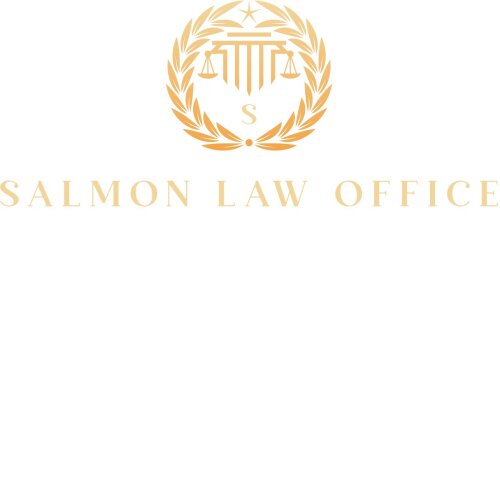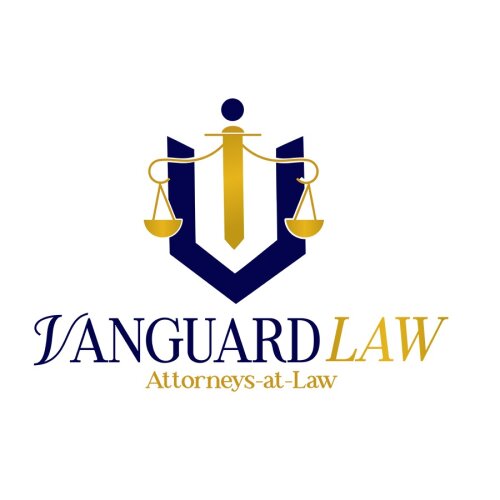Best Real Estate Lawyers in Jamaica
Share your needs with us, get contacted by law firms.
Free. Takes 2 min.
Free Guide to Hiring a Real Estate Lawyer
Or refine your search by selecting a city:
List of the best lawyers in Jamaica
Jamaica Real Estate Legal Questions answered by Lawyers
Browse our 1 legal question about Real Estate in Jamaica and read the lawyer answers, or ask your own questions for free.
- % FEE ON CONVEYANCING OF A VACANT LOT OF LAND?
- Dear Sir/Madam I have a vacant quarter acre plot of land in Duncans Trelawany that a buyer has express interest in. Can you kindly provide me with preliminary cost/total approximate cost of completing this transaction please. Thanks Kind regards Michael McKenzie
-
Lawyer answer by Recososa Law Firm
For conveyancing of a vacant lot of land in the Philippines, the professional fee of a lawyer is not strictly fixed by law but is generally guided by the Integrated Bar of the Philippines (IBP) Schedule of Attorney’s Fees and...
Read full answer
About Real Estate Law in Jamaica
Real estate law in Jamaica pertains to the regulations surrounding property ownership, leasing, and sales within the country. Jamaica boasts a vibrant real estate market that includes residential, commercial, and agricultural properties. The real estate transactions are primarily governed by the Registration of Titles Act, the Conveyancing Act, and the Real Estate (Dealers and Developers) Act. These laws aim to protect the interests of all parties involved and ensure transparent and fair transactions. Additionally, land ownership can be complex due to historical systems such as common law and registered titles, making legal guidance crucial.
Why You May Need a Lawyer
Engaging a lawyer in real estate transactions in Jamaica is highly advisable due to several complex situations that can arise. These include:
- Navigating Property Titles: Issues with title deeds and ensuring that property titles are clear is a common complexity.
- Drafting or Reviewing Contracts: Legal advice is essential for drafting contracts to prevent future disputes.
- Conducting Due Diligence: Lawyers perform necessary checks to confirm that a property is not encumbered by liens or other issues.
- Handling Disputes: Property disputes can occur related to boundaries, ownership, or breaches of contract, requiring legal intervention.
- Processing Transfers: Proper legal channels need to be navigated for the transfer of property to avoid legal issues.
- Facilitating Probate: When handling inherited property, understanding the probate process is crucial and can require legal assistance.
Local Laws Overview
Real estate laws in Jamaica are detailed and designed to manage various aspects of property ownership and transactions. Key aspects include:
- Registration of Titles Act: Regulates the registration of property and ensures security of land titles.
- Conveyancing Act: Governs the legal process of transferring property from one owner to another.
- Real Estate (Dealers and Developers) Act: Controls the practice of real estate dealers and developers, ensuring ethical standards are met.
- Strata Titles Act: Pertains to properties that comprise multiple unit owners, such as condominiums.
- Land Development and Utilization Act: Manages the planning and development of land in compliance with national standards.
Frequently Asked Questions
What is the process for buying property in Jamaica?
The buying process generally involves making an offer, conducting due diligence, signing a sales agreement, and legally transferring the title with the assistance of a lawyer.
Are foreigners allowed to purchase real estate in Jamaica?
Yes, foreigners can purchase property in Jamaica without restrictions, though they may require permission from the Exchange Control in the Bank of Jamaica.
What is title insurance, and do I need it?
Title insurance protects against potential disputes over property ownership or title defects. It is not mandatory but highly recommended.
How can I verify the ownership of a property?
Verification can be done through the National Land Agency, where you can access records about property ownership and other details.
What are the closing costs for real estate transactions?
Closing costs typically include legal fees, transfer tax (5%), registration fees (0.5%), and stamp duty (4%), shared between buyer and seller.
What taxes apply to real estate transactions?
Major taxes include transfer tax on sales and property tax, assessed annually by the government.
How long does it take to complete a real estate transaction?
The timeline can range from 30 to 90 days, depending on the complexity of the transaction and the efficiency of the processing channels.
Is it necessary to hire a real estate agent?
While not legally required, hiring an agent can be beneficial as they offer expertise and facilitate negotiations.
What documents are necessary for selling a property?
Necessary documents include the title deed, sales agreement, tax certificate, and transfer documentation prepared by a lawyer.
Can property be owned jointly?
Yes, property ownership can be structured as joint tenancy or tenancy in common, each with different rights and obligations.
Additional Resources
To further explore real estate processes in Jamaica, consider these helpful resources:
- National Land Agency (NLA)
- Real Estate Board of Jamaica
- The Ministry of Economic Growth and Job Creation
- Jamaica Developers Association
- Local real estate agencies and legal firms specializing in property law
Next Steps
If you require legal assistance in real estate matters in Jamaica, consider taking the following steps:
- Identify and engage a qualified real estate lawyer or law firm with experience in Jamaican property laws.
- Collect all relevant documentation and details about the property or transaction in question.
- Schedule a consultation to discuss your legal needs and ensure a comprehensive understanding of your responsibilities and rights.
- Follow your lawyer's guidance on completing any necessary legal processes to secure your real estate interests successfully.
Remember, informed decisions combined with professional legal advice can greatly enhance your property transactions in Jamaica.
Lawzana helps you find the best lawyers and law firms in Jamaica through a curated and pre-screened list of qualified legal professionals. Our platform offers rankings and detailed profiles of attorneys and law firms, allowing you to compare based on practice areas, including Real Estate, experience, and client feedback.
Each profile includes a description of the firm's areas of practice, client reviews, team members and partners, year of establishment, spoken languages, office locations, contact information, social media presence, and any published articles or resources. Most firms on our platform speak English and are experienced in both local and international legal matters.
Get a quote from top-rated law firms in Jamaica — quickly, securely, and without unnecessary hassle.
Disclaimer:
The information provided on this page is for general informational purposes only and does not constitute legal advice. While we strive to ensure the accuracy and relevance of the content, legal information may change over time, and interpretations of the law can vary. You should always consult with a qualified legal professional for advice specific to your situation.
We disclaim all liability for actions taken or not taken based on the content of this page. If you believe any information is incorrect or outdated, please contact us, and we will review and update it where appropriate.
Browse real estate law firms by service in Jamaica
Jamaica Attorneys in related practice areas.
Browse real estate law firms by city in Jamaica
Refine your search by selecting a city.














